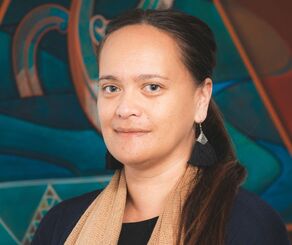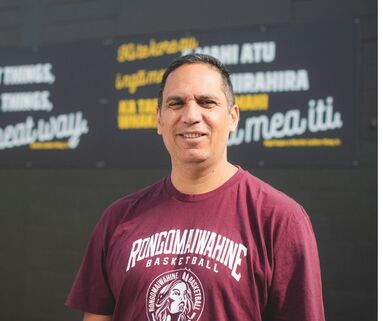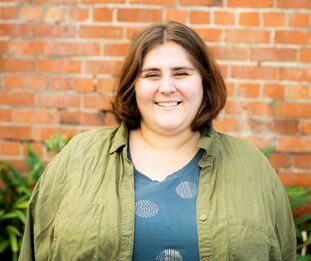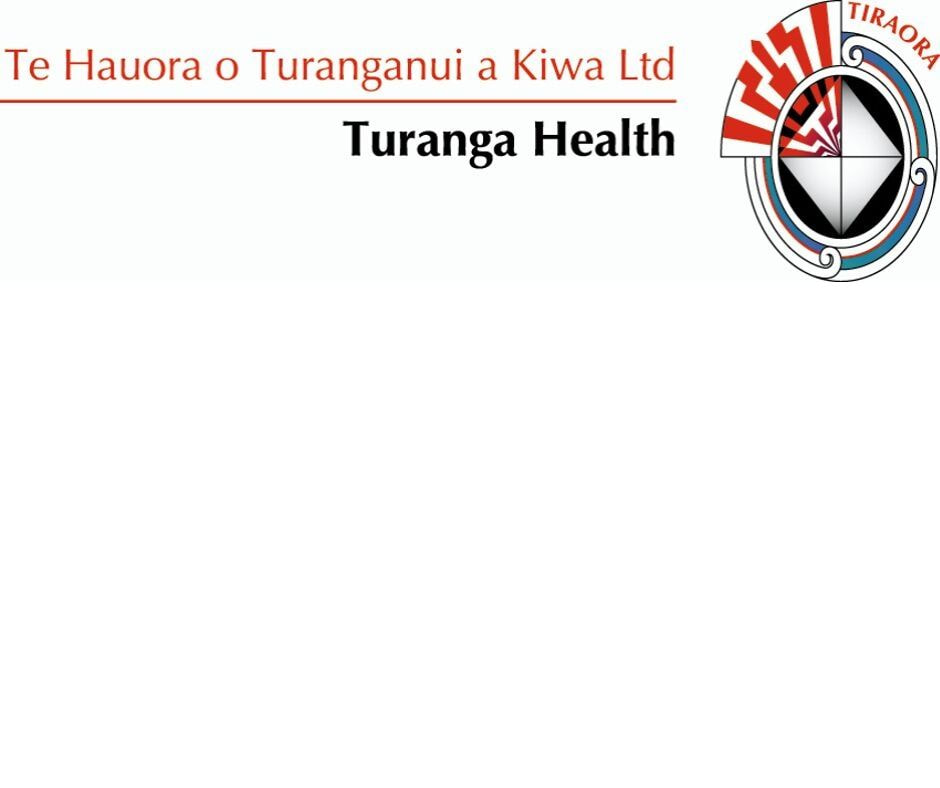 IT can be tricky finding jobs for whānau not ready for traditional work but Richard Brown says if he can't find a job, he'll make one. As work broker for Turanga Health's Vanessa Lowndes Centre for those with mental, physical or intellectual disabilities, Richard works with around a dozen whānau to help find and support them in work. “It might only be for a few hours a week but that matters in terms of enriching their lives while they get to make a contribution,” he says. “But we do sometimes have to get a bit creative in finding that work.” To that end, Turanga Health runs a car valet service that provides work for whānau; some do laundry for local schools; some might go out to pick fruit; while others are employed by cleaning contractors. “As well as putting a bit of money in their pockets, being engaged in work gives our whānau mana and purpose, and that's something we all need.” Richard's own employment history shows a clear path to Turanga Health's door, his work in roles like sports development, education and mentoring youth all focused on helping others be their very best. And as he tells the VLC whānau, sometimes you just have to muck in, like he did working through the Covid-19 lockdown, helping Turanga Health deliver countless meals and thousands of “Covid kits”. “Being part of that reminded me of why Turanga Health is such a great place to work,” he says. “It has this strong connection with the community that you really see in times of need.” Outside of work, Richard is a sports nut who played at a high level in both rugby and league, and to this day runs the Tairāwhiti junior league because “if people don't get involved, these sports will die out”. He's also dad to four children – from pēpi to near-teen – who he reckons keep him on his toes. Like him, they're all sporty. And though he is a blond-haired, blue-eyed Pakeha, his partner's role as a tutor in te reo Māori means all four are fluent speakers and are well versed in te ao Māori. “That's just how we live, it's who we are as a whānau,” he says. “We love being together and doing things together. I just love spending time with my kids.”
57 Comments
 Far from the hustle and bustle of working in Australian hospital emergency rooms and operating theatres, nurse Rebecca Hoani has settled into a quiet but important role supporting vulnerable māmā and their pēpi in Gisborne. “I feel very settled and really enjoy my job,” says Rebecca, who right now is walking her own difficult journey reconnecting with life after the loss of her spouse two years ago. Rebecca, Rongowhakaata, Ngāi Tāmanuhiri, Rakaipaaka, is coordinator of local service E Tipu e Rea – a holistic programme helping look after mothers who are facing challenges while they are pregnant, or when they have a newborn or young child. Visiting nurses and kaiāwhina will wrap as many services as needed around the family such as the nationwide Tamariki Ora Well Child service, healthy home improvements, smoking cessation, or links to other services such as drug and alcohol. Alongside this support the staff may be able to help the māmā to access essential items purchased using the small E Tipu e Rea putea or fund. “Some whānau can be managing very stressful situations on top of bringing up a newborn or young baby,” says Rebecca. “It might be violence in the home, drug and alcohol issues, or even homelessness. This small putea through E Tipu e Rea can be used for things like a cot, a car seat, or a breast pump - items that will help support the whānau to ensure their baby can be kept healthy and safe.” Rebecca works out of the Turanga Health office on Derby St where all E Tipu e Rea referrals from around the rohe are managed from. Once approved staff from Turanga Health, Ngati Porou Hauora and Te Aitanga a Hauiti Hauora work with the families who are receiving support. The work is busy, but nothing like the hectic shiftwork of Rebecca’s previous jobs. Born and raised in Gisborne Rebecca trained to be a nurse in Hawkes Bay and then worked for 15 years inMelbourne across both tertiary hospital emergency departments and operating theatres. “But something changed when we had our children and I couldn’t see myself in that environment of stress, trauma and shift work. That’s why I moved into recovery room nursing after I had babies.” She, husband Bernard, their son, and with one on the way, moved back to Gisborne three years ago to be closer to whānau as Bern's health was rapidly deteriorating as a result of a long term auto immune condition. But in early 2019 the family lost Bern to illness. Bearing the unbearable, Rebecca has thrown herself into supporting her own two babies, now nearly three and six, and staying physically and emotionally well. “After my husband passed it was time to do something for me. I wasn’t sure if I could go back to work in healthcare again. I knew I didn’t want to go back to frontline nursing so this has been something to help mentally change my focus.” She says working in the E Tipu e Rea “hub” as its known, has been humbling. “It’s an honour to support the nurses and kaiāwhina working face-to-face with whānau in their homes.” Now she’s back home Rebecca is loving the reconnections with her whānau and rohe. She is improving her te reo Māori through Rongowhakaata wananga; has joined a waka ama team; and in winter loves nothing more than a cold water surf session. It shocks the body into feeling something and sharpens the mind, she says. “That rush you get afterwards, it can stay with you for hours.” Rebecca reports to Tamariki Ora WellChild manager Janneen Kinney. Janneen is thrilled to have someone with Rebecca’s compassion working behind the scenes in such an important area of health. “Rebecca has a quiet strength, a strong connection with te ao Māori and understands the ‘whatever it takes’ kaupapa. She is truly an asset to the team and the wahine she is helping support.”  AFTER starting her family young, Turanga Health accounts administrator Alecia Lewis worked in both business and Māori development but says it was her first job that showed her what she wanted in a workplace. “My first office job, from when I was 18, was with Mo Reedy Transport and I loved working there. There was a real whānau atmosphere with Mo being like my koro and between him and the rest of the team I learned heaps about both the job and myself . . . they all helped me grow into adulthood.” Alecia, Ngāti Porou, spent the following years growing her family of three children, studying business and computing, and working for an accountancy firm and an iwi organisation. Then in mid-2019 she joined Turanga Health where her desire for new challenges has been met . . . and then some. “My initial focus was on payroll but there is no sitting in a corner and hiding behind your screen here,” she says. “Lisa (Turanga Health corporate services manager Lisa Tamatea) has taken me under her wing to make sure I get a wide range of experiences. “I have really benefited from Turanga Health's focus on personal development that is not only good for us as individuals, it’s something we take into all areas of our lives.” And in addition to all those challenges, Alecia is working on furthering her studies in business, skills she hopes to use to help create better health outcomes. “There are so many opportunities at Turanga Health and I feel I have already had the chance to do so much,” she says. “It has really brought me out of my shell.”  IF you’re going to have “courageous conversations” you need to compile the data to back them up and, for Turanga Health, that is Adam Tapsell's job. Since he joined the primary health organisation in August 2020, Adam's work as a data analyst has involved pulling together all sorts of information, from what staff have been doing to who they have spent time with, and the outcomes of those connections. “And we share that data on a weekly basis,” he says. “On Mondays our teams all meet to see what is happening in their areas then on Fridays they come back together to look at the week that was, the aim being to measure the impact of our activities to help us define and manage future goals.” Those goals, of course, focus on better outcomes for whānau and achieving that goal has been a constant in Adam's near 30-year career. Born and raised in Gisborne, as a university graduate his first job was the seven years he spent as a probation officer, in Hamilton. “I'd actually studied management but had always wanted to help people and that job taught me the important lesson that you should never take people at face value.” By the early 2000s, though Adam, Ngāti Porou, Te Arawa, Ngāti Kahungunu, had a hankering to travel so headed for the United Kingdom where he worked for New Zealand Immigration, and where he and wife, Kylie, had their first child. But while they were connected with the Ngāti Rānana London Māori Club, the couple missed whānau support and headed back home where, between Gisborne and Rotorua, Adam worked for ACC, Housing NZ and Whānau Ora, as an advocate for whānau for the Ministry of Social Development, and in iwi finance and job placement. “My work has always been focused on the betterment of people and if you are into spreadsheets and numbers, which I am, the data analysis I am doing now is a useful way of doing that,” Adam says. “In terms of where Turanga Health currently sits and how it wants to grow as an organisation, data is a powerful tool it can use to its advantage in that ongoing journey.”  WITH the help of her extraordinary grandparents Tara Collins went from early school leaver to community nurse becoming a mother along the way. “What my grandparents taught and showed me didn’t sink in immediately, but it did when I hit my late teens and I take my hat off to them for creating that lightbulb moment in my life.” Tara, 28, is a community nurse with Turanga Health. Passionate about delivering healthcare in a community setting, and with a goal of working in mental health, Tara’s journey to nursing is a tangled and happy story. Like others in her family Tara’s commitment to education in her early years was somewhat sporadic. She grew up in Auckland with three of her six siblings and there wasn’t much money to go around. Home life could be unstructured and school just wasn’t a priority. “It was common for us kids to not go to school.” At age 11 Tara was taken in by her Napier-based maternal grandparents Bernard and Valerie Harrision, and to this day, she attributes her own accomplishments to their love and care, and introduction to her faith. “My grandparents began caring for me and suddenly there was money to do sport, and education became a focus. If that didn’t happen, I believe I would have been young, pregnant, and making poor life choices. That’s where my life was heading. They saved me.” Despite leaving school early, with the support of her grandparents, Tara decided to pursue a long-held passion in woodwork and earned a level 3 certificate in carpentry from Tairawhiti Polytechnic. She enjoyed creating wooden furniture and many of her early pieces such as an outside recliner for her grandmother are still in the family home today. Still young at this time she was recently married to husband Andy Collins and starting a family was a goal. But that’s where the life plan became a little unstuck. Babies proved harder to come by than expected, and so with the building industry in a recession, Tara joined her painter decorator husband in his trade and they successfully carved out a life for themselves in Christchurch. Childless, and with a desire to be closer to family, the pair returned to the North Island in 2014 and Tara became a caregiver at a resthome, first in Tauranga and then at Ryman in Gisborne. “I didn’t initially have a burning desire for that kind of work but I thoroughly enjoyed it.” Tara remembers one day when an idea that was brewing … finally took hold. “I was slogging it out, showering and looking after residents, and I was often drenched in sweat and doing the heavy lifting. I looked at the nurses and I thought ‘Right, do I want to care give the rest of my life, or do I want to educate myself and move up the ranks?’” “I think caregivers are wonderful. But I also knew that if I wanted the sort of life for myself that my grandparents had had, then I needed to get back into the workforce.” By this time Tara and Andy had endured seven years of infertility and two years of fertility treatment. “When I decided to go into nursing I thought ‘we’re probably not going to have kids, and so this is my back up plan’.” Tara says she always struggled at English, maths and science at school so before attempting the degree she did the six-month New Zealand Certificate in Study and Career Preparation. “I remember crying a lot during this time. My brother who was Year 11 at the time, had to help me with the maths.” She slogged through, used rote learning, and held on to the vision that she would be the first person in her family to get a degree. After finishing the foundation course Tara felt confident and enrolled in the Bachelor of Nursing. She studied for six months of the three-year degree and then …. the unthinkable happened. “Halfway through my first year, blimmin miracle, I got pregnant!” Nine months later Tara and Andy introduced Gideon Bernard to the world (named after her grandfather of course) and if you can believe this, she had a daughter two years later. Because of the delightful interruption of motherhood, it took Tara five years to do her degree. Much of it is a blur of nappies, note-taking, exams and excruciating tiredness, but through it all her grandparent’s belief in her was steadfast. “It was their support which now means I try and inspire my younger siblings. I tell them I started from scratch, from nothing, and it’s there if you want to grab it.” Tara joined Turanga Health late 2020 and has found herself immersed in a nursing model dedicated to ensuring a connection between an individual’s wellbeing, whanau and home. “I wish I had done my nursing placements here,” she says. “Every day I get to see the difference that we can make by seeing people in their homes.” She says further down the track she would like to pursue an interest in mental health nursing. Her passion is driven by personal and professional desire. “I want to be involved in improving mental health and suicide statistics in New Zealand. In Gisborne we have lost friends to suicide. They were receiving services but it’s still not enough. With new research we can be trying new things and I want to be a part of that. We have to do better don’t we?” This May, with her husband, children and grandparents in the audience, Tara Joy Collins will take part in the graduation ceremony to receive her Bachelor of Nursing. “That’s going to be special. I take my hat off to my grandparents. I hope my children can also flourish in the path paved for me by my grandparents – then I will be happy.” |
Media Releases
Email us if you want to receive our media releases. Archives
February 2024
|


